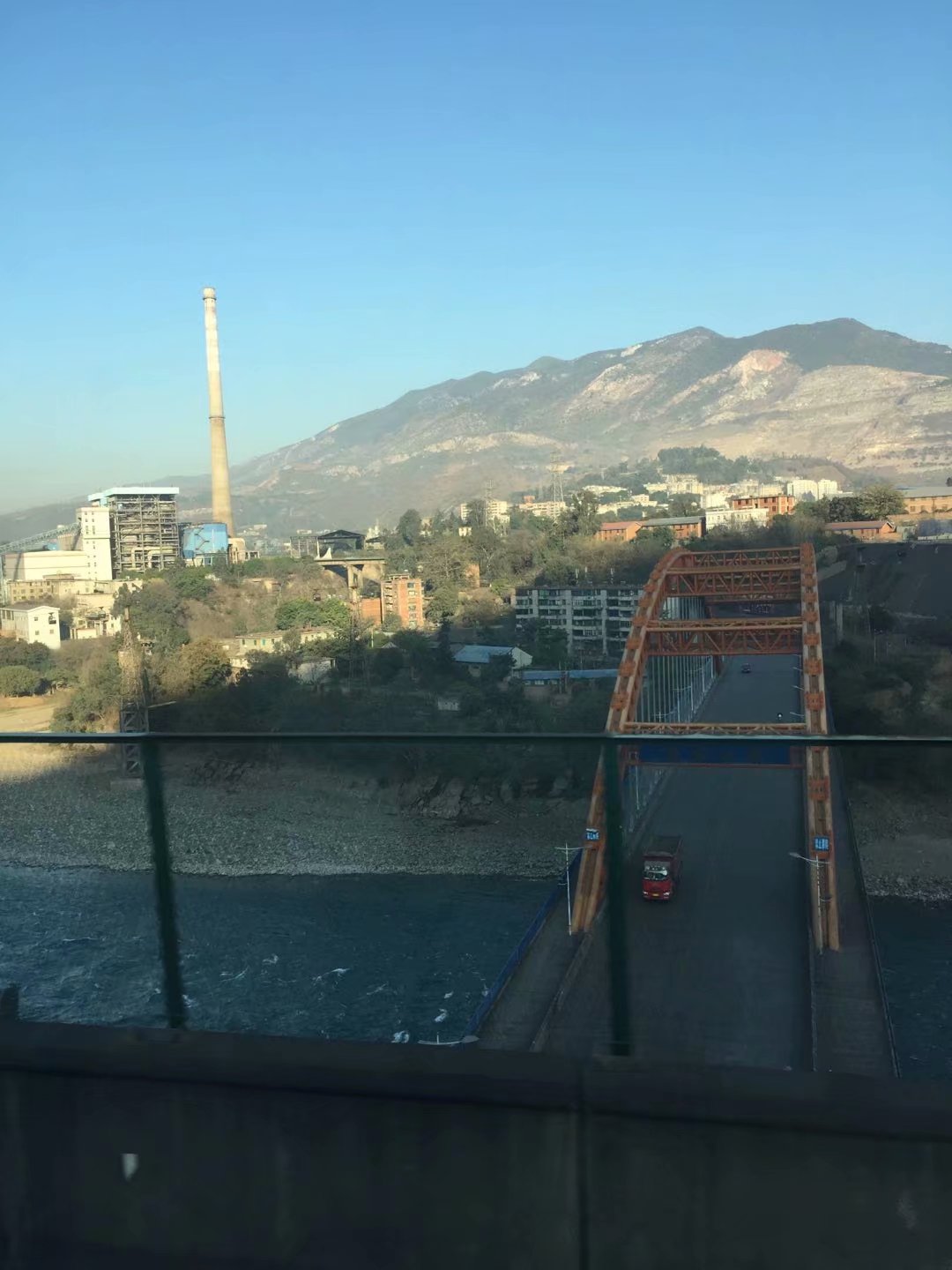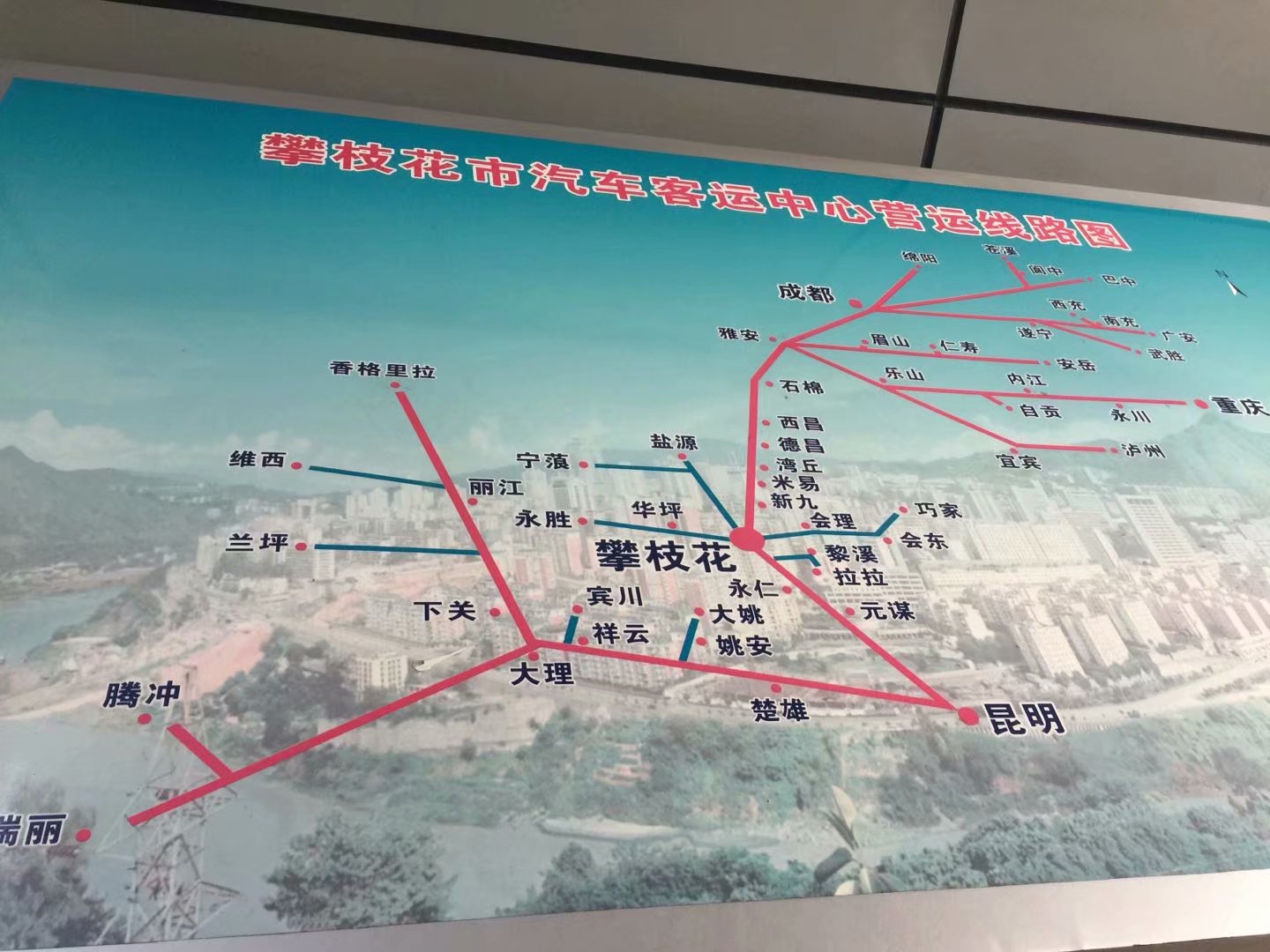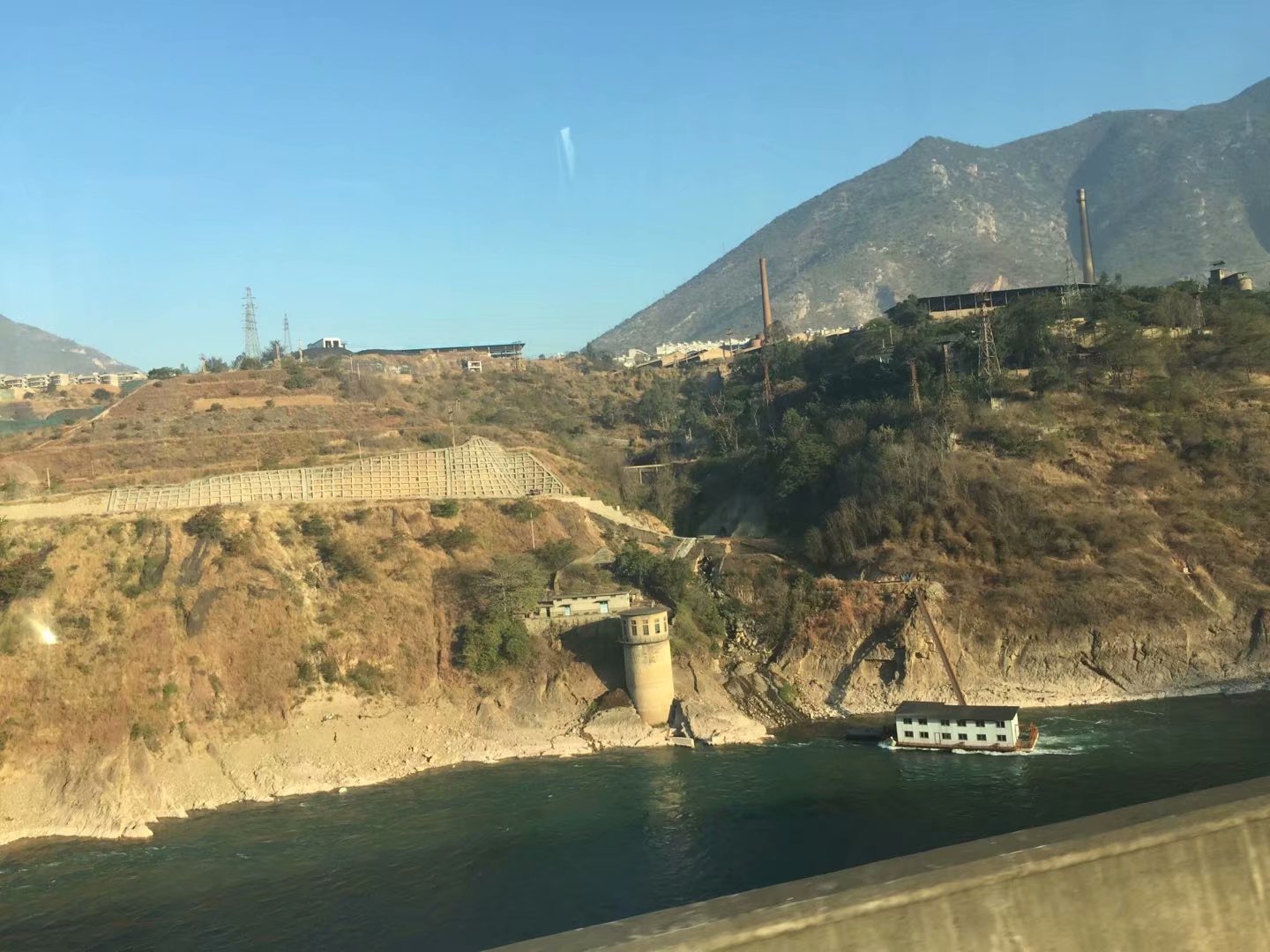The first time I heard the name “Panzhihua”, it was from the
Sichuan Weather Forecast. Having the word ‘Hua’ (flower) in a city name sounded
cool and impressive and preceded to picture this city carpeted with ‘Panzhihua’ flowers.
Our newly refurbished dark army green 1960’s sleeper train
from Chengdu slid into the Panzhihua station after a night’s journey on the over
600-kilometer track. Exiting from our carriage, we were immediately welcomed by
the acrid stench of coal, our nostril passages instinctively narrowing to
prevent the fumes from entering.
We came here to take a bus to Lijiang, a city lying in the northwest mountainous region of Yunnan province. We called a Didi driver and very soon were heading towards the long-distance bus terminal, which, I assumed would take about 20 minutes. As the car sped along the riverside, I gazed at the city stretching along the Jinsha River and the bare, seemingly infertile foothills that limit the expansion of the city. Every few minutes, tall smokestacks puffing out huge quantities of greyish smoke and massive cooling towers belting out thick plumes of white steam lay on the other side of the river. That it was a steel and iron-producing town became abundantly clear.
Dust-coated cars were jammed on the other side of the road.
I wondered where all these cars were coming from, albeit it was morning rush
hour but the city, wherever it lay, was not nearly as apparent as the industry
that drives this place.
The river, frequently punctuated by arched iron bridges,
looked surprisingly clean with its aqua blue waters shimmering in the morning
sunlight, though a thin greyish haze hung over the city.
It was midwinter. A beautiful day dawned and yawned as the sun
climbed in the chilly air, making the light haze ever more visible, but, so our
driver explained, by midday the sun’s rays would produce a sub-tropical heat.
The city enjoys long hours of sunshine, providing the best conditions for fruits
such as mangos and loquat.
The drive to the bus terminal, situated on the high bank of the river, turned out to be twice as long as I had first assumed, but the trip still felt like 20 minutes as our driver had affably chatted away. Despite living in a city where people’s lifespans were diminished by the industry that make this city, he seemed happy. And uncharacteristically, the bus ticket clerk also seemed happy to do her job, in fact she was the most pleasant and happy ticket clerk I’ve ever dealt with.
These two people, plus our bus driver, were a stark reminder that not just industry but also people are what make a city either a happy place to visit or a miserable experience.
We boarded the bus and sat back in our seats preparing to witness the magical and majestic beauty of the Himalayan foothills during our seven hour pilgrimage to Lijiang, where I hoped to catch my first glimpse of a real snow covered mountain, the famed Jade Dragon Mountain.










Comment